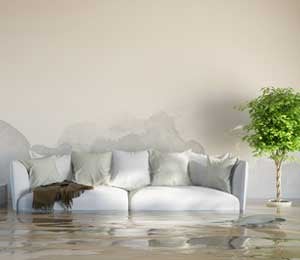 The news media spends countless hours reporting the devastation and destruction severe weather causes. Think of all the images you’ve seen in the last year for tornadoes, floods, blizzards, ice storms etc. Now pick which one you think creates the most damage.
The news media spends countless hours reporting the devastation and destruction severe weather causes. Think of all the images you’ve seen in the last year for tornadoes, floods, blizzards, ice storms etc. Now pick which one you think creates the most damage.
My guess would have been tornadoes. If you agree with me, that answer is incorrect. Floods are the number-one disaster in the United States.
Unless you live near a river or lake, you probably don’t give flood insurance much thought. You may think a flood will never happen where you live. Yet, weather patterns can change quickly, bringing several inches of rain to your community. So are you covered when the water starts creeping up your driveway?
Property360.com published an article titled, “5 things you should know about flood insurance.” What I like about the article is they provide a comprehensive list of what’s covered and what’s not covered by flood insurance. Standard homeowners insurance doesn’t provide coverage for damage caused by a flood. Auto insurance will provide coverage if your car turns into a raft and can be seen floating down the street.
Here are a few things that are covered by flood insurance.
- The building and its foundation;
- Major systems and appliances; and
- Curtains and blinds.
Here are a few things that aren’t covered by flood insurance.
- Decks, hot tubs, and swimming pools;
- Cars, motorcycles, four-wheelers, snowmobiles; and
- Money, precious metals, and other important and valuable papers.
Congress created the National Flood Insurance Program (NFIP) in 1968 to help protect property owners from the financial devastation of a flood. Talk to your insurance agent to make sure you have the protection you need.
Do you have any tips or information you’d like to share? If so, I’d love to hear from you. Please share your thoughts in the box below.
Sources:
http://www.propertycasualty360.com/
https://www.fema.gov/
This article is intended for general educational and illustrative purposes only and should not be construed to communicate legal or professional advice. Further, this article is not an offer to sell insurance. Please consult with your licensed insurance agent for specific coverage details and your insurance eligibility. All policies are subject to the terms, conditions, limitations, definitions, and exclusions contained therein.





